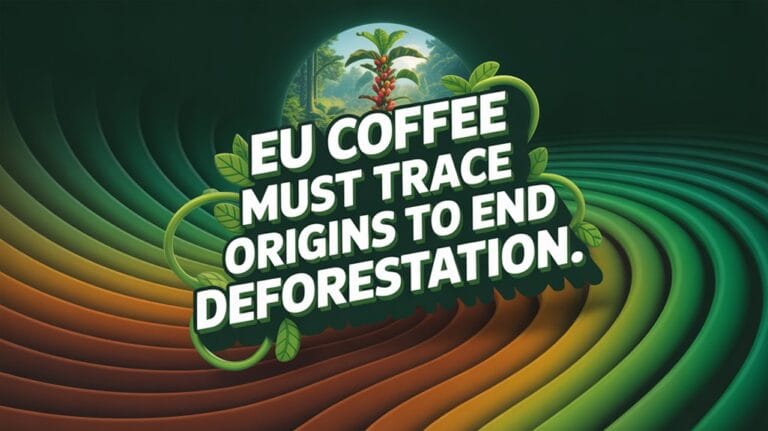EU coffee leaders are stepping up to tackle greenwashing in the industry. They aim to address misleading claims about the sustainability of coffee sourcing. As the world’s largest coffee consumers, EU countries need to guarantee that coffee comes from sustainable sources. By becoming transparent about where coffee beans are grown, companies can avoid the trap of greenwashing and meet regulatory compliance.
Under new EU regulations, coffee companies must accurately identify the origin of their coffee beans by December 30, 2025. These rules focus on preventing deforestation linked to coffee farming, which is responsible for about 6% of global deforestation connected to European demand. The challenge is especially big for large coffee producers, but smaller companies must follow suit a year later. Failure to comply could lead to losing access to important EU markets.
EU coffee companies must trace bean origins by December 30, 2025, to combat coffee-related deforestation and maintain market access.
To meet these regulations, coffee suppliers need strong tools to document their sourcing practices. Technologies like geo-mapping and farm mapping apps are essential for companies to prove they are using sustainable business practices. Some cooperatives are even using low-cost mobile apps to track their farms, guaranteeing that they can meet the documentation requirements.
The European Coffee Federation (ECF) emphasizes the importance of conducting thorough assessments. These can include independent audits and training for suppliers in high-risk areas. Having clear risk management plans can help guarantee a deforestation-free coffee supply in the EU market.
Despite the promising efforts, EU coffee leaders are facing hurdles. They need to adapt to a changing regulatory landscape that includes initiatives like the Green Claims Directive. This directive aims to stop misleading environmental claims and will require proof behind green marketing. If enforced, coffee companies will need to provide facts to build consumer trust.

